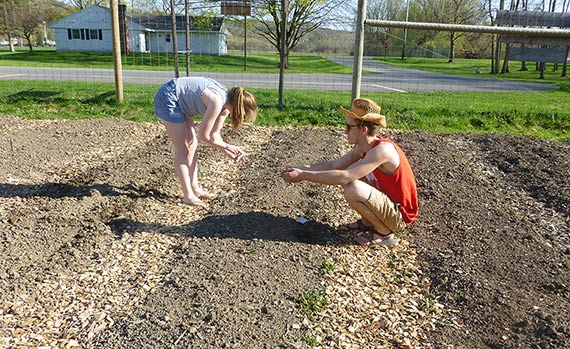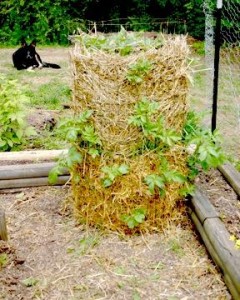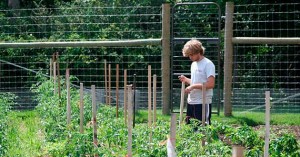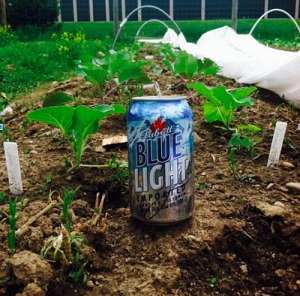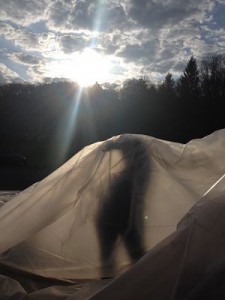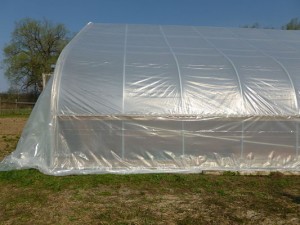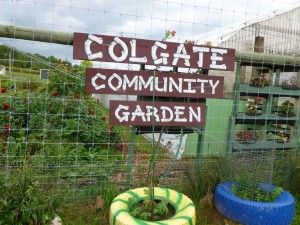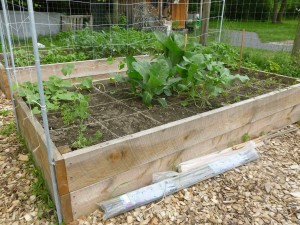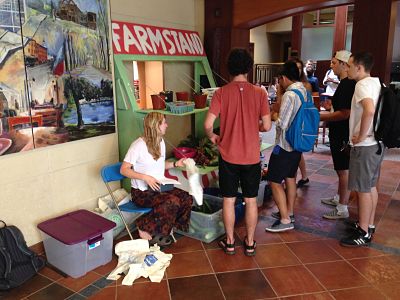Department: Sustainability Office
Hours per Week: 6 hrs in spring; 40 hrs in summer
Job Description:
The Sustainability Office is offering two paid Garden Internship positions to students starting in late-April 2016 until late-August 2016. Garden interns will help manage and promote the organic community vegetable/herb garden on campus. This is a physically demanding, yet very rewarding job. Work includes long days and exposure to outdoor elements (e.g., heat, sun, rain, etc.). The student interns are expected to coordinate and organize volunteers and student work parties, as well as carry out an independent garden project from conception to completion. The Garden Interns will report directly to garden manager Beth Roy, and should expect weekly or bi-weekly progress meetings as well as an end of season performance review. Interns will work in close collaboration with other Colgate students, faculty, and staff to plan and manage the garden. The student interns will gain life-long skills and knowledge in planting and maintaining an organic garden, organizing events, and supervising volunteer workers.
Required Skills and Experience:
Key Responsibilities
● Work with garden manager Beth Roy to plan and manage the garden during the spring and summer seasons. Specific tasks include preparing soil, cultivating, planting, weeding, and harvesting.
● Organize and supervise volunteer work parties.
● Coordinate with Green Thumbs presidents to schedule a weekly time for volunteer work parties, and be at the garden during those scheduled times to supervise those work parties.
● Manage an individual garden project, from conception to completion.
● Provide continuity for work on the garden throughout the 2016 growing season.
Recommended Qualifications and Skills
● Strong work ethic and self-motivated.
● Strong interpersonal and communication skills.
● Preference will be given to those with experience and firsthand knowledge in farming and/or gardening with vegetable crops; though previous garden experience is not required.
● Experience organizing and supervising the work of others.
● Tolerance for hard work and exposure to outdoor elements.
● Excitement about promoting local farming and local food production.
Work Requirements and Benefits
Student interns will begin planning for the garden in late-March and will begin field work in late-April, working 6 hours per week. In May interns will begin to work 40 hours per week until the internship ends in August—the exact starting and ending dates will be set in consultation with Beth Roy. The two interns will also be able to take two weeks (non-overlapping) of vacation during the summer; again, this schedule will be set in consultation with Beth Roy.
To apply, send resume and one page cover letter to garden manager, Beth Roy (eroy@colgate.edu). The application deadline is March 18.
Starting Hourly Rate: spring semester – $9.30 (estimated because Financial Aid determines pay rate); summer – $10.00
Supervisor: Beth Roy, Garden Manager
Key Contacts: John Pumilio, Director of Sustainability; Christopher Henke, Associate Professor, Director of Upstate Institute and faculty advisor to the garden; Beth Roy, Colgate Community Garden Consultant



